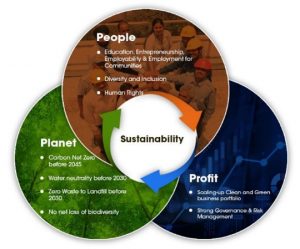In an era marked by rapid technological advancements, globalization, and environmental challenges, the role of education has evolved beyond traditional academic pursuits. Today, education is not only about imparting knowledge but also about instilling a sense of responsibility towards the environment and society. One crucial aspect of this evolving educational landscape is the integration of Environmental, Social, and Governance (ESG) principles. This article explores the intersection of education and ESG, highlighting the importance of fostering awareness and action for future sustainability.

Understanding ESG:
ESG refers to a set of criteria that measure a company’s performance in three key areas: environmental responsibility, social impact, and corporate governance. These criteria have gained significant traction in the business world as investors, consumers, and employees increasingly prioritize sustainability and ethical practices. However, the impact of ESG extends far beyond corporate boardrooms, reaching into the realms of education.
The Role of Education in Fostering ESG Awareness:

Curriculum Integration:
Educational institutions play a pivotal role in shaping the mindset of future leaders and decision-makers. By integrating ESG principles into the curriculum, students gain a comprehensive understanding of the interconnectedness between business practices and broader societal and environmental impacts. Courses focusing on sustainable development, ethical business practices, and environmental studies are vital components of this educational shift.
Experiential Learning Opportunities:
Beyond theoretical knowledge, experiential learning is crucial for fostering a practical understanding of ESG principles. Internships, field trips, and hands-on projects allow students to witness the real-world implications of business decisions on the environment and society. This experiential approach encourages a sense of responsibility and accountability.
Multidisciplinary Approach:
ESG is inherently multidisciplinary, requiring insights from diverse fields such as economics, sociology, environmental science, and ethics. Educational institutions must encourage interdisciplinary collaboration, breaking down silos between departments to provide students with a holistic understanding of sustainability challenges and solutions.
ESG and Career Development:

Corporate Expectations:
As businesses increasingly adopt ESG practices, they seek employees who not only possess technical expertise but also understand the broader implications of their work. Educational institutions that incorporate ESG principles into their programs better prepare students for the evolving demands of the job market.
Entrepreneurship for Sustainable Solutions:
Education serves as a catalyst for innovation. By instilling ESG principles, institutions empower students to become entrepreneurs focused on developing sustainable solutions to pressing global challenges. This entrepreneurial mindset is crucial for creating a more sustainable future.
ESG and Global Citizenship:
Cultivating Responsible Global Citizens:
Beyond professional development, education shapes individuals as global citizens. ESG education fosters a sense of responsibility towards the planet and its inhabitants, encouraging students to make informed choices that contribute to a more sustainable and equitable world.
Advocacy and Activism:
Armed with knowledge and a sense of responsibility, students become advocates for positive change. Whether through community engagement, activism, or participation in sustainability initiatives, educated individuals can influence societal norms and corporate behavior.
Conclusion:
In the face of global challenges such as climate change, social inequality, and corporate misconduct, education emerges as a powerful force for positive change. By integrating ESG principles into the educational framework, institutions can nurture a generation of responsible leaders, entrepreneurs, and global citizens. As we look toward the future, the collaboration between education and ESG is not just about creating a sustainable business environment but about shaping a sustainable and equitable world for generations to come.



Leave a Comment